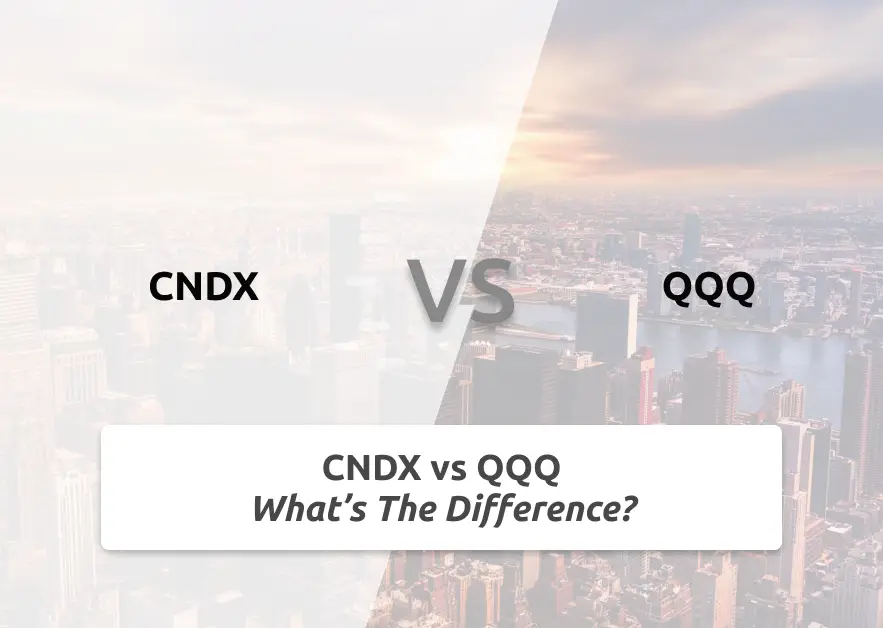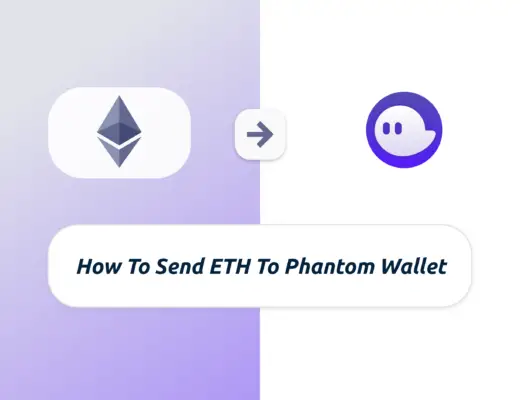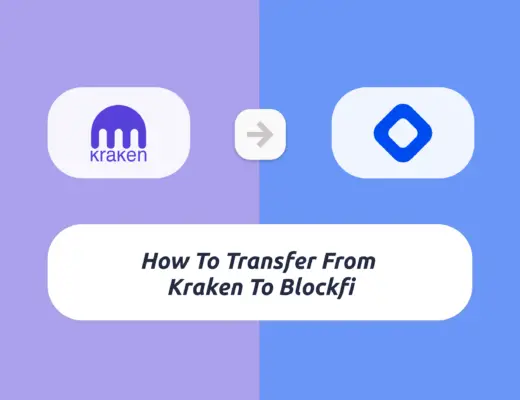If you are looking to purchase an ETF that tracks the NASDAQ-100 index, there are 2 ETFs that are available: CNDX and QQQ.
Apart from being listed on 2 different stock exchanges, are there other differences between them?
Here’s what you need to know:
Contents
The difference between CNDX vs QQQ
CNDX is listed on the London Stock Exchange while QQQ is listed on the Nasdaq. While they both track the same NASDAQ-100 index, they mainly differ in terms of their expense ratio, dividend withholding tax and dividend distributions.
Here’s an in-depth comparison between these 2 ETFs:
Index tracked
Both CNDX and QQQ track the NASDAQ-100 index.
The Nasdaq-100 is a stock market index that follows the top 100 non-financial companies listed on the Nasdaq stock exchange
This gives you exposure to quite a lot of growth stocks, where most of them are predominantly tech-focused.
Fund manager
In terms of the fund manager, CNDX is managed by Blackrock, while QQQ is managed by Invesco.
AUM
The Assets Under Management (AUM) usually gives an indicator as to how ‘popular’ the fund is with investors:
| CNDX | QQQ | |
|---|---|---|
| AUM | $7,442.20 Million | $187.31 Billion |
QQQ has a much higher AUM as compared to CNDX.
This could possibly due to the QQQ being listed on the Nasdaq, where most investors will have greater access to, compared to CNDX.
Exchange and Currency
In terms of the exchange listing, QQQ is listed on the Nasdaq, while CNDX is listed on the London Stock Exchange.
However, both of them are still denominated in USD, so the main difference is in their exchange listing.
Estimated unit price
Here are the estimated unit prices between these 2 ETFs:
| CNDX | QQQ | |
|---|---|---|
| Estimated Unit Price | $760 (USD) | $340 (USD) |
The unit price of CNDX is more than twice as compared to QQQ.
Since the minimum ETF unit size for both exchanges is 1, you will need a larger capital to invest in CNDX, as compared to QQQ.
Dividend Withholding Tax
CNDX is domiciled in Ireland, while QQQ is domiciled in the US. You will incur a lower dividend withholding tax when you invest in Irish-domiciled ETFs.
| CNDX | QQQ | |
|---|---|---|
| Dividend Withholding Tax | 15% | 30% |
If you are a non-resident alien to the US, you will incur the 30% dividend withholding tax.
However, there is a tax treaty between Ireland and US. Any dividends issued from Irish-domiciled ETFs will only incur a 15% withholding tax.
2 layers of taxes
For any ETF, the fund manager buys the stocks based on the index they are tracking. The dividends that they distribute are collected from the stocks in their fund.
As such, there are 2 layers where you may incur some taxes:
- From stock to ETF
- From ETF to you, the investor
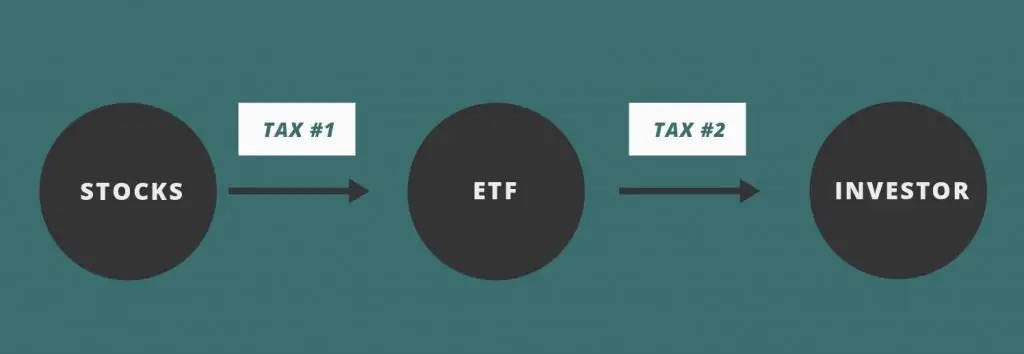
CNDX incurs the tax on the first layer
For CNDX, the dividends from the US stocks are distributed to an Irish-domiciled ETF. As such, the 15% withholding tax applies on the first layer.
QQQ incurs the tax on the second layer
When the stock distributes its dividend to the QQQ ETF, no tax is incurred. This is because it is from a US stock to a US-domiciled ETF.
However, when the dividends are distributed to you, they will incur the 30% tax. This is because you are a non-resident alien.
If you wish to track your dividends with taxes accounted for, you can consider trying out StocksCafe’s platform.
Dividend distribution
The way that CNDX and QQQ handle their dividends are rather different.
CNDX automatically reinvests your dividends
CNDX is an accumulating ETF. This means that they will not distribute your dividends to you. Instead, they will reinvest the dividends they receive into the same stocks in the index.
If you are looking to reinvest your dividends from the start, CNDX may be a better choice.
This is because you do not need to incur any additional transaction fees when the fund reinvests your dividends for you!
QQQ is a distributing ETF
Meanwhile, QQQ is a distributing ETF. This means that any dividends received by the fund manager will be distributed to you.
Invesco will distribute the dividends to you on a quarterly basis.
This is great if you want to receive some income when you invest in this fund!
You can read my comparison between accumulating and distributing ETFs to see how they are different.
Estate tax
Another significant cost of investing in US-related assets is the estate tax. This can go from 18% all the way to 26%!
An estate tax is a tax on the right for you to transfer your assets after you have passed on.
Since QQQ is domiciled in the US, it will be included in your taxable estate.
However, CNDX is domiciled in Ireland.
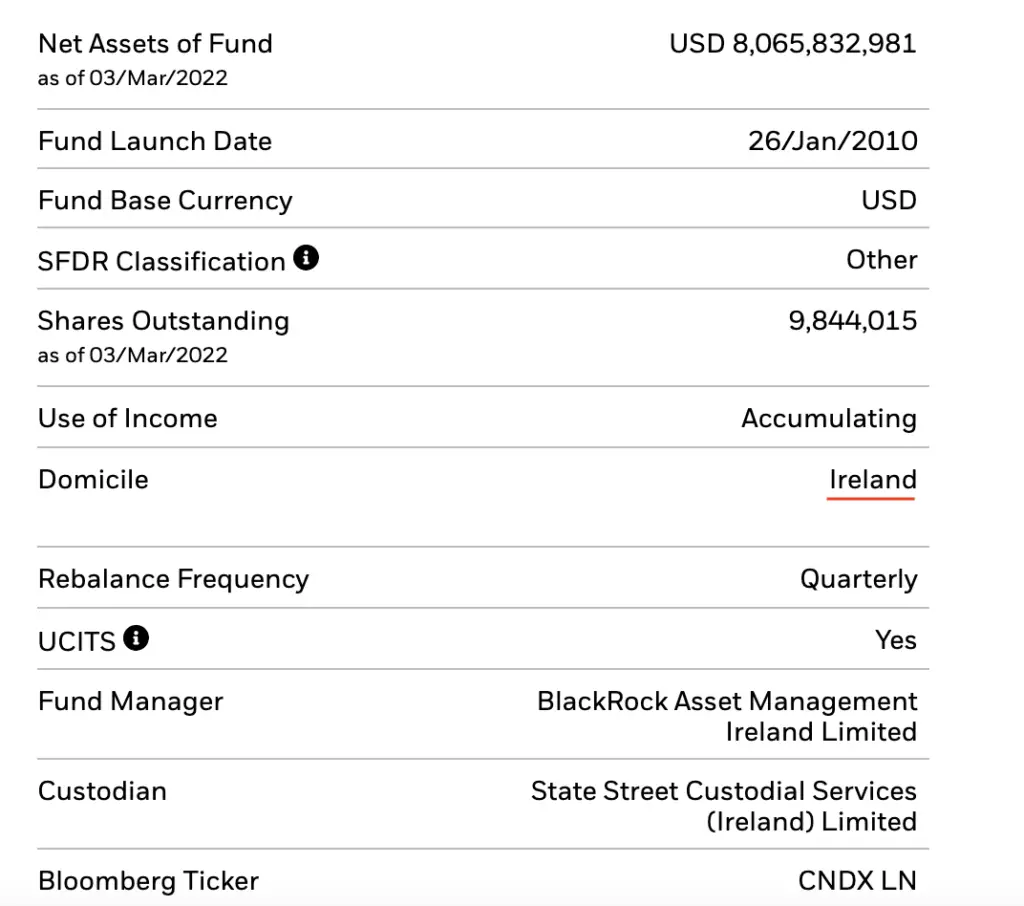
Even though CNDX owns US stocks, you will not incur the estate tax!
You will only incur an estate tax on your Irish-domiciled ETFs if:
- You or your beneficiary are an Irish citizen
- You own an Irish property
If you wish to leave behind a legacy for your loved ones, CNDX may be the more ideal ETF to invest in.
Expense ratio
On top of the trading commissions you’ll need to pay the broker, you will have to pay an expense ratio to the fund manager as well.
The expense ratio is charged by the fund manager to cover the costs of running the fund.
Based on the value of your assets in the fund, you will be charged an annual fee.
Here are the expense ratios for these 2 funds:
| CNDX | QQQ | |
|---|---|---|
| Expense ratio | 0.33% | 0.20% |
CNDX has a higher expense ratio as compared to QQQ. Although the percentages may seem really small, it can add up in the long term!
Whenever possible, you should try your best to invest in a fund that charges you the lowest fees.
Liquidity
If you are looking to actively trade using these ETFs, you may want to look at their liquidity. One of the indicators you may want to look at is the ETF’s trading volume.
| CNDX | QQQ | |
|---|---|---|
| Average Trading Volume | 11,000 | 74 million |
QQQ has a much higher trading volume than CNDX due to it being listed on the Nasdaq.
If you are a frequent trader, QQQ will be a better ETF to invest in. This is because you will be able to buy or sell the ETF at your intended price.
Verdict
Here’s a summary of the differences between CNDX and QQQ:
| CNDX | QQQ | |
|---|---|---|
| Index Tracked | NASDAQ-100 | NASDAQ-100 |
| Fund Manager | Blackrock | Invesco |
| AUM | $7,442.20M | $187.31B |
| Exchange | London Stock Exchange | Nasdaq |
| Currency | USD | USD |
| Estimated Unit Price | $760 | $340 |
| Dividend Withholding Tax | 15% | 30% |
| Dividend Distribution | Accumulating | Distributing |
| Estate Tax | No | Yes |
| Expense Ratio | 0.33% | 0.20% |
| Average Trading volume | 11,000 | 74 million |
So which ETF should you choose?
Choose CNDX if you want to reinvest your dividends
If you intend to invest in the NASDAQ-100 for the long term, CNDX will be the better choice. Your dividends are automatically reinvested.
This allows you to compound your money to a larger extent!
Moreover, you can save on transaction fees that you would need to pay if you were to reinvest the dividends by yourself!
CNDX is more tax-efficient for non-US investors
If you are a non-US investor, CNDX seems to be the more tax-efficient ETF to invest in.
You will receive a much lower dividend withholding tax and not incur any estate tax. However, the expense ratio is slightly higher!
As such, you’ll need to consider the total costs of investing in an ETF, rather than just the taxes that you’ll incur.
Choose QQQ if you are a frequent trader
Even though QQQ is the larger fund, it is actually more costly to invest in QQQ compared to CNDX!
The only main advantage that QQQ has over CNDX is the higher average trading volume. If you are a frequent trader, trading in QQQ may help you to buy or sell the units at your intended price.
Conclusion
Both ETFs track the same index, so their performances should be very similar. The ETF that you choose depends on a few things:
- The taxes that you wish to incur
- The exchange that you want to trade in
- The expense ratio you’re willing to pay
If you’re looking for a way to track the markets and your portfolio, you can consider using TradingView, which allows you to monitor more than 50 stock exchanges.

Do you like the content on this blog?
To receive the latest updates from my blog and personal finance in general, you can follow me on my Telegram channels (Personal Finance or Crypto) and Facebook.
Are you passionate about personal finance and want to earn some flexible income?

